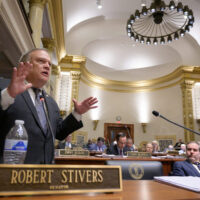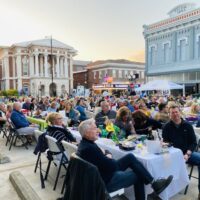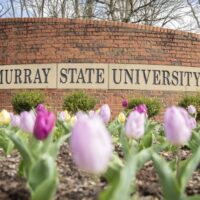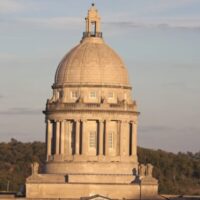Legislation to keep slot machine-like historical racing games in Kentucky got its first hearing in the General Assembly on Thursday.
Senate Bill 120 seeks to codify historical racing in state law after the Kentucky Supreme Court ruled last year that the machines don’t qualify as “pari-mutuel wagering,” the gambling form traditionally used for betting on horse races.
Historical racing parlors have become lucrative businesses for some racetracks in Kentucky, which doesn’t permit traditional casinos.
Tom Drury, a horse trainer from Goshen, said revenue from historical racing has helped keep the horse industry afloat in the state.
“If this doesn’t go, we’re going to lose tracks, and we’re going to lose jobs, and we’re going to lose horses, and we’re going to lose people,” Drury told a legislative committee.
The bill passed the Senate Licensing and Occupations Committee on Thursday and now heads to the full Senate.
Kentucky’s constitution only permits three types of gambling: the lottery, charitable gaming like bingo and pari-mutuel wagering—a system where gamblers bet against each other and there can be multiple winners.
Though historical racing machines function and look like slot machines, they base their results on the outcomes of actual horse races that took place in the past. That’s how they’ve remained legal in Kentucky since they were introduced more than a decade ago.
But in September, the Kentucky Supreme Court ruled that at least some forms of historical racing machines aren’t pari-mutuel, writing that the system “does not create a wagering pool among patrons such that they are wagering among themselves as required for pari-mutuel wagering.”
The ruling was a blow to racetracks like Churchill Downs and Keeneland, which have spent millions building “racinos” that house thousands of machines.
(The Christian County Chamber of Commerce supports the legislation. Although the Oak Grove Racing, Gaming and Hotel does not have historical racing machines, the chamber’s leadership believes the court’s ruling “could open the door for additional regulations that could harm the multi-million dollar investment by Churchill Downs & Keeneland.” Churchill and Keeneland were partners in developing the Oak Grove facility, which open in 2020. “Oak Grove Racing & Gaming offers so much to our region,” Kelli Pendleton, chamber president & CEO, testified to the legislative committee. “It generates tourism funding which has been devastated by the recent pandemic, it offers hundreds of jobs to folks in the area. It offers a restaurant, hotel, and soon an equestrian center and entertainment venue. This investment is critical to boosting our region and strengthening our economy.”)
The Kentucky Family Foundation has fought to make historical racing illegal in the commonwealth for years.
Martin Cothran, a spokesperson for the organization, said during the Thursday hearing that the effort to enshrine historical racing is a “millionaire’s stimulus bill.”
“How does legislation to allow historical horse racing slot machines help the state, when little of [its revenue] goes into state coffers and most of it goes to enrich wealthy corporations, some with out-of-state owners,” Cothran said.
Kentucky gleaned about $15 million from taxes on historic racing last year, an amount critics say is too low when compared to the $3 billion handle.
A group of 17 organizations, including the Kentucky Education Association, the Kentucky Mental Health Coalition and the Kentucky Coalition Against Domestic Violence, sent a letter to lawmakers urging them to raise taxes on the machines.
(Hoptown Chronicle contributed information to this story about the Christian County Chamber of Commerce’s position on the legislation.)






